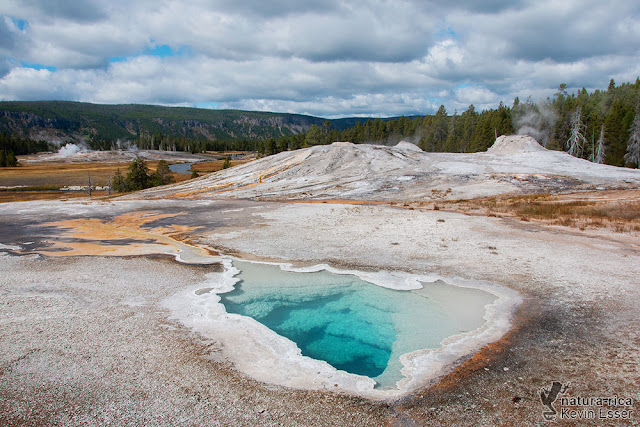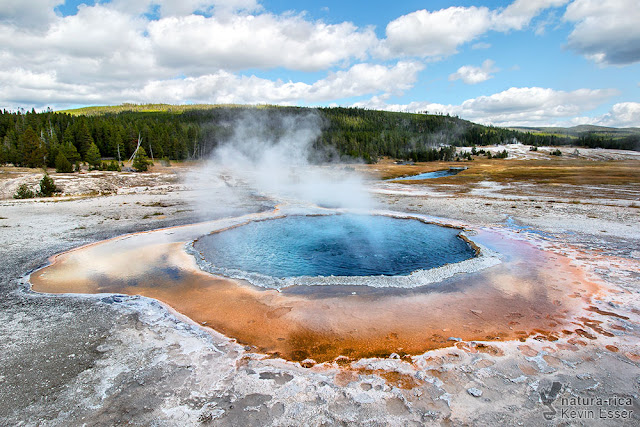After 4 hours of driving from Twin Falls, we arrived in West Yellowstone, Montana. This small and touristy town, right next to the Yellowstone National Park entrance.
Yellowstone National Park is the oldest national park in the world. With 8987 km² area it is one of the largest national parks in the United States. 96 percent of the park are located in Wyoming, 3 percent in Montana and 1 percent in Idaho. Yellowstone is best known for its geothermal springs such as geysers and mud pots, as well as its wildlife such as bisons, bears and wolves. In 1978, UNESCO declared it a World Heritage Site.
We were greeted by a Bison (Bison bison) and a fantastic scenery. An Osprey (Pandion haliaetus) had chosen the top of a tree as a lookout point.
Yellowstone National Park is the oldest national park in the world. With 8987 km² area it is one of the largest national parks in the United States. 96 percent of the park are located in Wyoming, 3 percent in Montana and 1 percent in Idaho. Yellowstone is best known for its geothermal springs such as geysers and mud pots, as well as its wildlife such as bisons, bears and wolves. In 1978, UNESCO declared it a World Heritage Site.
We were greeted by a Bison (Bison bison) and a fantastic scenery. An Osprey (Pandion haliaetus) had chosen the top of a tree as a lookout point.
 |
| Bison bison - American Bison |
 |
| Sunrise Scenery |
 |
| Pandion haliaetus - Osprey |
 |
| Old Faithful |
 |
| Heart Spring |
 |
| Spasmodic Geyser |
 |
| Wandering Garter Snake in its habitat |
 |
| Thamnophis elegans vagrans - Wandering Garter Snake |
 |
| Firehole River |
 |
| Crested Pool |
 |
| Morning Glory Pool |
No comments:
Post a Comment